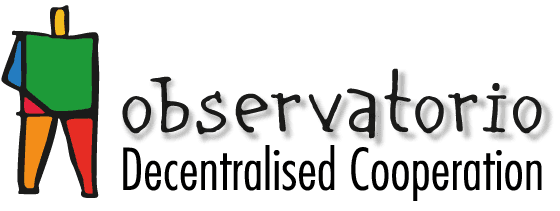Introduction:
The Observatory for Decentralized Cooperation, led by the Barcelona Provincial Council, launches the sixteenth edition of the online course on “Decentralized Cooperation”, a training effort aimed at promoting and reinforcing local public policies for decentralized cooperation.
In the context of the global health crisis generated by COVID-19, with the critical increase in inequalities, local and regional governments (LRGs) play a fundamental role to achieve a sustainable and inclusive recovery that guarantees the protection of the most vulnerable groups and the promotion of social cohesion, taking the 2030 Agenda for Sustainable Development as a global reference framework.
In this sense, this course aims to strengthen the capacities of these governments to formulate, plan and implement public policies of decentralized cooperation that respond to the challenges and challenges of each territorial context, making visible their potential and differential values such as solidarity, establishment of partnerships, and the exchange of knowledge and experiences.
To achieve greater participation and diversity of visions and experiences, the course will be available in two languages: Spanish and French, so people from all countries in the world who speak either of these two languages can send their request.
Target audience:
The training program is intended mainly at technical and political managers of international relations and development cooperation of local and regional public administrations. The participation of profiles that, from other levels, guide and manage decentralized cooperation programs is also encouraged.
Objectives:
- Identify the benefits of international projection.
- Make visible the difference between the logic of international cooperation and that of development cooperation in decentralized cooperation actions.
- Identify the challenges of decentralized cooperation.
- Internalize the culture of partnership and consultation.
- Acquire notions of management of initiatives and instruments of decentralized cooperation: planning, establishment of partnerships, project management and communication management.
- Know the rules of cooperation appropriation, harmonization, alignment, sustainability, etc.
- Share different real experiences of decentralized cooperation.
Program:
Chapter 1: Reference framework: Development cooperation and International Action of Local and Regional Governments.
Chapter 2: Decentralized cooperation.
Chapter 3: The modalities and instruments of decentralized cooperation in the current agenda.
Chapter 4: Management of decentralized cooperation projects.
Chapter 5: Empowerment of citizens: evaluation, participation and communication.
Conception of training:
- The course aims to take advantage of the richness and heterogeneity of the political, social and territorial panorama through the exchange of experiences of the participants.
- There is learning by doing and familiarization with real policies, good practices and case studies from the different continents of the planet.
- The aim is to generate a laboratory of ideas for local governments and a space for debate and discussion around issues related to international projection, decentralized cooperation and development cooperation
Methodology:
Training’s design takes into account that the profile of the participants is entirely of people who have a professional activity. It is NOT mandatory to connect to the Campus at specific times, so each participant can adapt the schedules of the activities to their own agenda.
It is also an online course with a clear practical vocation. For this reason, those activities that generate substantive debate or that are carried out in groups on practical cases are prioritized. The objective is that the own experiences of the people participating in the course are the axis on which to articulate the training. This combination allows deepening into the contents through a critical analysis, at the same time that it encourages the application of concepts and tools.
Before starting the training itself, the course includes a Module 0 that introduces the student to the dynamics and strategies of online training; Thus allowing to become familiar with the virtual work environment and its main communication and interaction tools with the group.
There will be a teaching person for each course and a reference tutor for both who will accompany the group through the materials and activities associated with each chapter. Throughout the course there will also be some streaming videoconferences with experts in the topics discussed to promote debate and exchange of ideas among the participants.
Admission criteria:
A total of 35 places are offered for each of the two modalities (Spanish and French). The course carries no cost for participants since it is fully funded by the Barcelona Provincial Council.
Any person of any nationality who carry out their professional activity in the field of decentralized cooperation can apply for the course. Once all applications have been received, the Evaluation Panel will review the different profiles and decide who are the 35 individuals selected for each of the two modalities. For the selection process, letters of institutional endorsement will be taken into account and gender and geographic equity will be sought. All people who apply to the course will receive an email at the end of the process to report the result of their application.
The training will last 3 months and will have a total duration equivalent to 60 teaching hours.
Key dates:
September 9, 2021: End of registration period
September 20, 2021: Beginning of the course
December 12, 2021: Course completion
Contact: ocd.bcn@diba.cat








